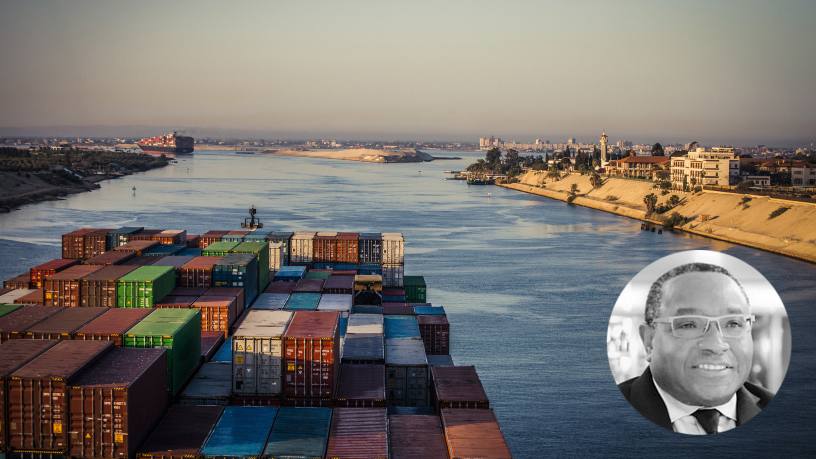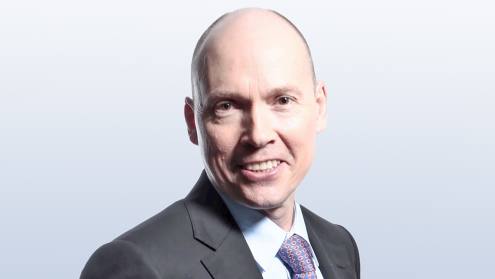
The Bracken column is named after Brendan Bracken, the founding editor of The Banker in 1926 and chairman of the modern-day Financial Times from 1945 to 1958.
Discussions of debt relief and finance for African countries mostly ignore the role of trade in generating revenues and driving broad-based, sustainable development. Policy questions that concern how Africa’s trade can become a dynamic force for change are rarely raised. Such questions are examined in a new book, How Africa Trades, based on research carried out at the London School of Economics and which I edited.
The extent to which exports dominate the inflows of foreign exchange into African countries may be surprising: at $421bn in 2019, they eclipsed official development assistance ($31bn), foreign direct investment (FDI) inflows ($40bn) and remittances ($84bn). Trade is — and will continue to be — an ever more important source of revenue flows into African countries and a critical resource for development and debt servicing.
Bigger picture
Trade flows are valuable beyond their monetary worth. Embedded in them are the ideas, technology and knowhow needed to compete on world markets. Most economic success stories and rapid reductions in poverty in recent decades, such as China’s integration into the world economy since 2001, have been predicated on trade.
Africa’s trade, unfortunately, greatly underperforms and fails to live up to this developmental potential. Exports from Africa account for just 2.3% of world trade although the continent has 17% of the world’s population. This share has stagnated; at 5% of world trade, it was higher in the 1970s.
Access to African fuels and industrial metals is a necessity for the functioning of modern industrial economies
What Africa trades in is also unhelpful. Fuels, ores and metals account for at least 60% of Africa’s exports every year since at least 1995. Some 47% of EU net FDI in Africa went to the mining sector between 2013 and 2020 compared to just 7% of all global EU outward investments. For US and Chinese investments, the story differs little. Investments are reinforcing Africa’s export concentrations.
That is not to say that Africa’s trade does not have considerable strategic significance. Access to African fuels and industrial metals is a necessity for the functioning of modern industrial economies elsewhere in the world.
Not all African countries face identical circumstances. Some do better. Eight have achieved a degree of export industrialisation, with manufactures accounting for at least 35% of their exports (between 2016 and 2020).
Time for a change
African trade flows must change, and trade policy can be a key instrument in making that happen. A new trade deal for Africa is needed. This should incentivise trade diversification, expansion of productive capacities and sustainable growth. For these goals to be met, two complementary measures are required: first, a sequencing of trade policy that prioritises intra-African trade (which is already more diversified than Africa’s external trade); and, second, liberalised trade between African countries as offered by the African Continental Free Trade Area (AfCFTA) initiative.
The former requires partner countries to “first, do no harm”. That is not currently happening: reciprocal agreements such as the EU’s Economic Partnership Agreements divide the African continent with divergent regulatory trade reforms. Such agreements should be better sequenced to support African integration. If the AfCFTA was fully implemented before such reciprocal agreements, it could support the kinds of regional value chains that would actually be able to take advantage of access to markets like the EU.
Deals with Africa should accordingly first grant non-reciprocal market access for a substantial transitional period. The international trading system can accommodate a special trade deal for Africa with negligible systemic effect. It is now widely recognised that the World Trade Organization requires thorough reform to address the challenges and realities of the 21st century. Africa’s plight in international trade and late development is one of those challenges.
The ideal trade deal for Africa is one that requires a broader trade-support framework. Trade preferences alone are an important but insufficient part of the solution. The policy environment in African countries themselves is often not supportive either. Many African countries need to overcome unstable macroeconomics and deficits in trade infrastructure, trade facilitation and institutional quality.
Africa’s trade partners can help with deliberate efforts to boost investment in African countries and improve the type of investment, diversifying away from disproportionate concentration on resource extraction to encourage agriculture and industry.
The ball is not only in partner countries’ court. African countries must themselves do better by taking a deliberate, strategic approach to trade and in engaging with external partners.
Debt and development finance initiatives for African countries must go hand-in-hand with trade policy reform. The world is also at an inflection point. It is essential that — already at this early stage — African countries are able to shape new rules and approaches to decarbonising trade, the clean energy transition and digital technologies in a manner that makes African trade a dynamic force for change.
David Luke is professor in practice at the Firoz Lalji Institute for Africa at the London School of Economics.












